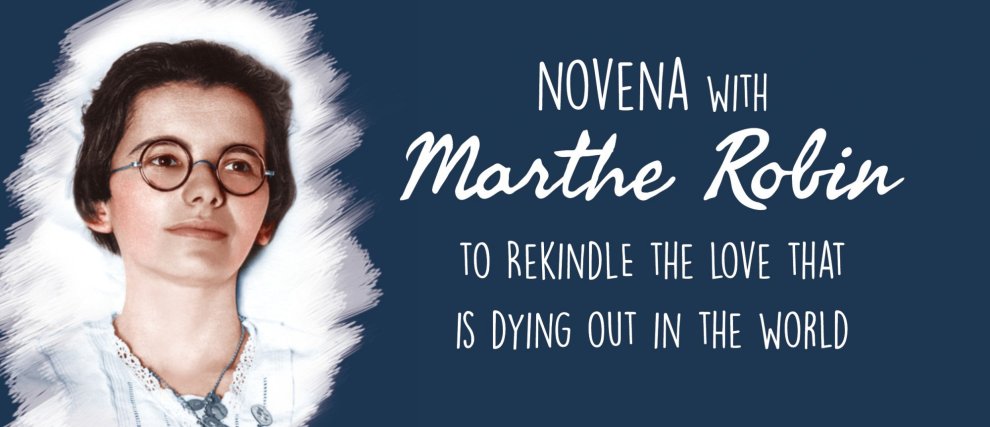Marthe Robin's Homes of Charity
The great work entrusted to Marthe Robin
At the origin of the Homes of Charity (officially called the Foyers de Charité) is the great Work desired by Jesus and entrusted to Marthe Robin, simple peasant of the remote French countryside. Heavily handicapped and bedridden throughout her life, she experienced a decisive encounter with the Lord who transformed her whole life. The Lord appealed specially to her.
In 1933, Martha received the inner revelation of Christ on the Homes of Charity, which he called “the great Work of my love.” Christ revealed His plan to her. It was to begin very simply, with the foundation of a small parish school in her commune: Châteauneuf de Galaure. In 1934 the school opened its doors thanks to the work of Abbé Faure, then parish priest. It was a school for young girls, bringing together seven girls at the very beginning, boarders and half-boarders. Martha liked to recall the beginning of the Work: “It is through the children's prayers that a Home is founded. Through it, all the great works of God begin.”
On February 10, 1934, the decisive meeting took place with the parish priest, Georges Finet. This Lyon priest had high responsibilities in Catholic education. He was commissioned to bring a statue of “Mary, Vessel of All Graces” to Martha for the new school.
The first meeting lasted three hours, Martha was very moved to meet Father Finet, whom she had already seen spiritually twice, and of whom Jesus had said to her: “The priest whom I am preparing for the establishment (of the Work) and for its immense development will be an apostle of great influence. He will make magnificent conquests and numerous and unexpected conversions there. “
At the end of the meeting, Martha revealed Jesus’ wish to the Father and then began the great adventure of “Homes of Light, Charity and Love”. Martha insists a lot on the role of non-clergy people: the Church will “totally rejuvenate itself through the non-clergy apostolate. They will have a very important role to play in the Church… “
The first Foyer de Charité was created in 1936, in a small village in the Drôme region, Châteauneuf de Galaure.
What is a Foyer de Charité?
A Home of Charity is above all a community of people, mainly non-clergy people. A priest is the father of the House, he is the head of the community.
Today, there are 1,000 people signed up for life as members of the Homes of Charity. These people may be single or married, clergy or not. They dedicate their lives to the service of evangelization, pool their goods and live in community in the image of the first Christians. Their daily lives are divided between prayer and work around welcoming pensioners.
The members of the Homes still have other activities all over the world, they run clinics or homes for orphans. Through this, they seek to relieve suffering and show God's presence.
The main mission of the Homes of Charity is to offer spiritual retreats of Christian education presenting a synthesis of the fundamentals of the Catholic faith. They are retreats of silence, away from the world to help people recharge. These retreats are open to all, whatever their situation, everyone may wish to take stock of their lives, learn what the Catholic faith is, regain calm and peace before making a choice, etc.
Since 1986, the work of the Homes of Charity has been recognized by the Pontifical Council for the Laity as an international association of faithful of pontifical right. Each Home is attached to the diocesan church.
Homes of Charity Today
The Homes of Charity are an international Catholic organization. Today, 80 shelters are open in 42 countries (Europe, Africa, America and Asia). Each Home is adapted to the local culture of the country where it is founded, but all Homes come together in the same spirit.
Everywhere, Homes participate in the “New Pentecost of Love.” They are poles of evangelization in today's world. They aim to strengthen and encourage Christians in their faith and to give all men the opportunity to meet Christ.
In the world, seven schools founded by the Homes of Charity offer a Christian education. The worldwide influence of the Work of Marthe Robin is immense and the fruits abundant.

